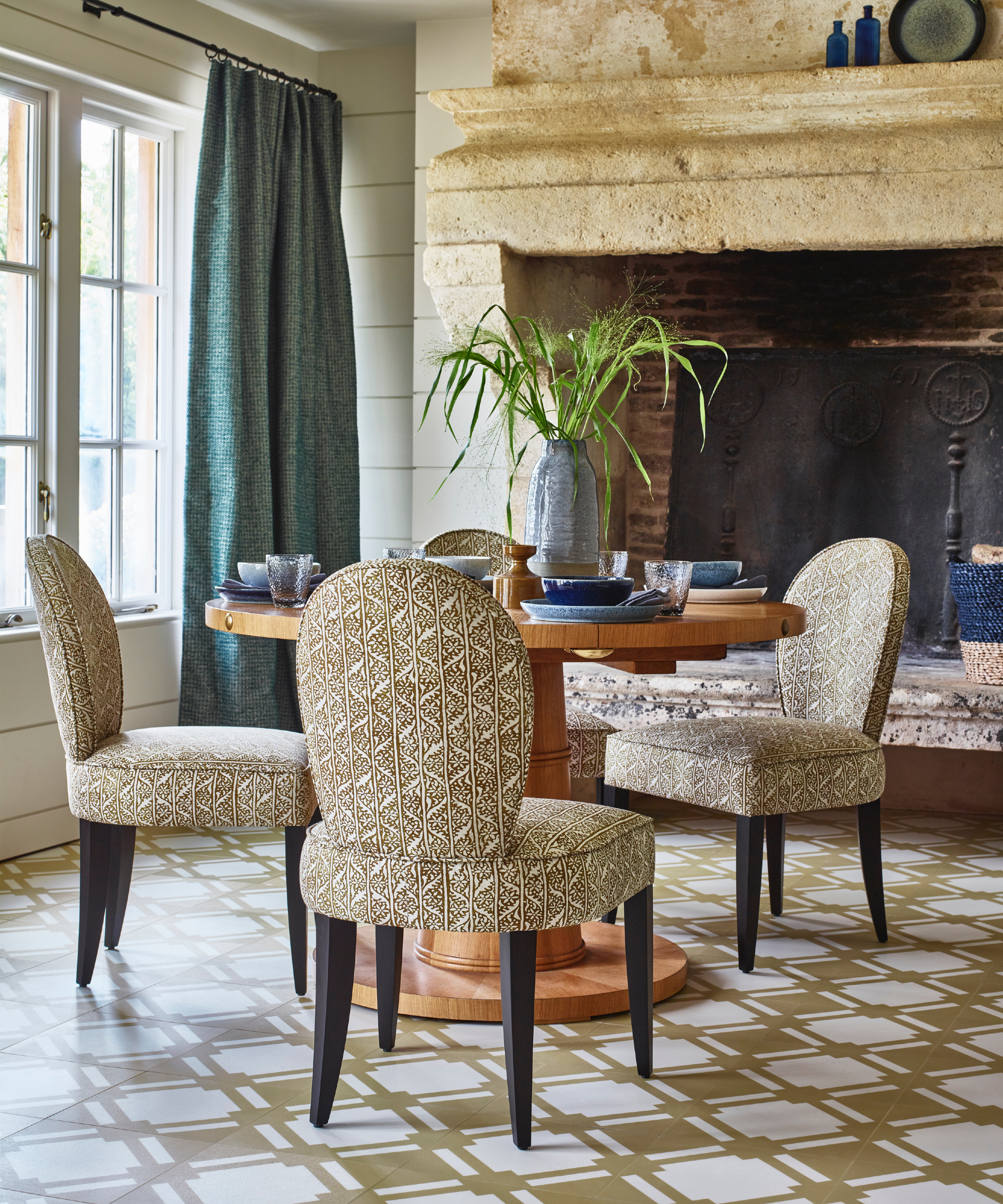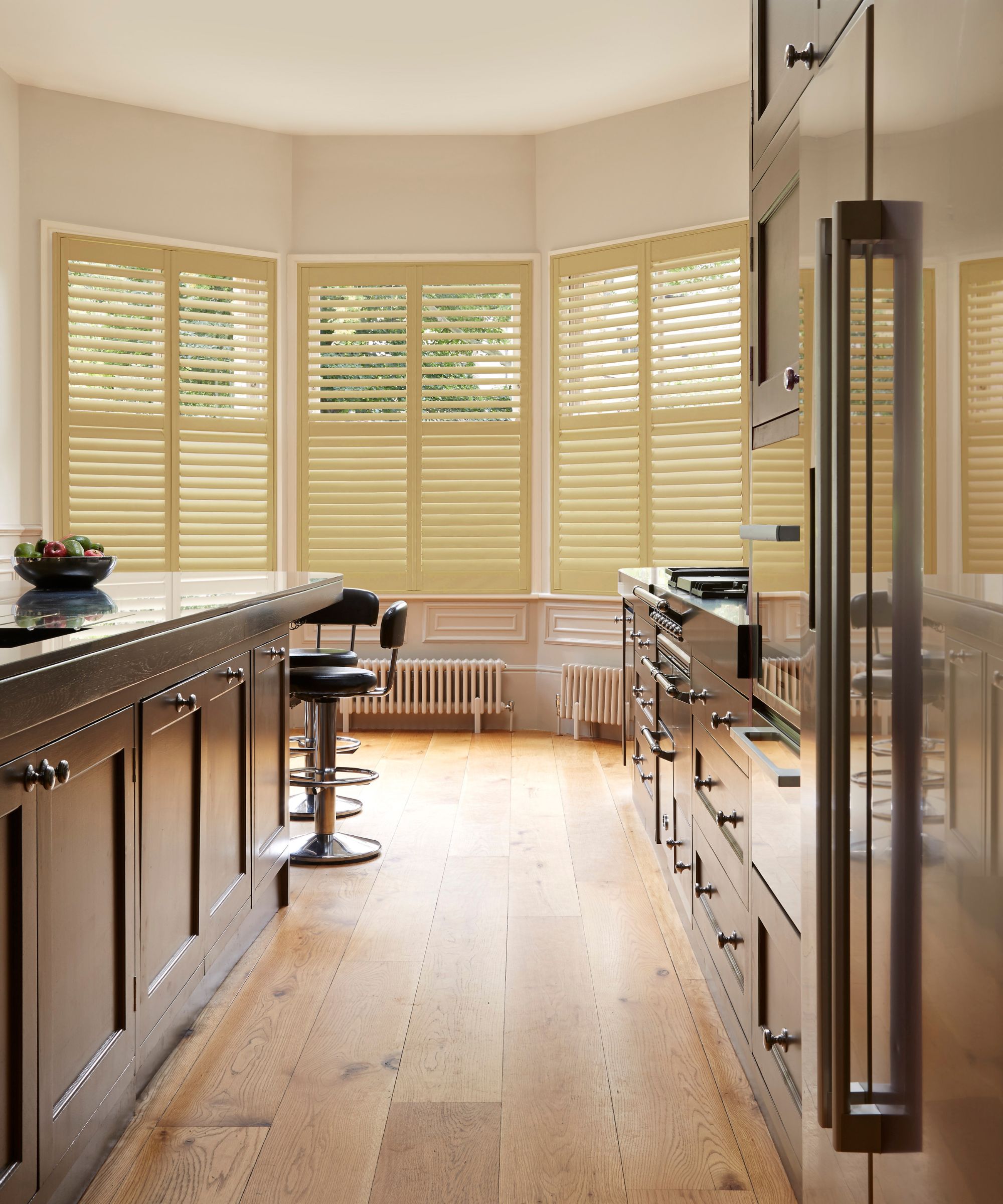How to clean floors with a steam mop – for immaculate floors, fast
Making the most out of your steam mop takes only a few essential steps. Learn how to master the basics to efficiently deep clean your floors every time

Steam mops are one of the many relatively new inventions that make our home cleaning easier and more thorough. Unlike traditional mops that use soapy water that must be wrung out, a steam mop provides the cleaning power itself, using the high temperature of steam to clean our hard floors.
As well as the best cordless vacuums and the best vacuums for pet hair, a steam mop is essential for anybody who appreciates a deep clean. It doesn't hurt that they make deep cleaning a much more painless process, too.
We spoke to the experts to find out exactly how to best use a steam mop and to use one as efficiently as possible for quicker cleaning and cleaner floors.
How to clean floors efficiently with a steam mop
Matthew Baratta, VP of Operations at Daimer Industries, explains the benefits of using a steam mop:
'Steam cleaners are incredibly versatile and ideal for hard surfaces, including sealed floors, tile, and grout,' he explains. 'A steam mop prevents the need for harsh chemicals or detergents. The high steam temperature helps kill fungus, mold, bacteria, and other allergens, which is perfect for sanitizing your home quickly and effectively.'
So, read on for our 4 essential steps to cleaning your floors efficiently with a steam mop.
1. Clear the floor

Whatever your floor, whether it's tile or wood, kitchen or bathroom - the floor should be prepped before you get the mop out.
Vacuum or sweep (thoroughly) to 'ensure all loose dirt, dust and other grit have been removed,' says Ken Doty, COO and cleaning expert at The Maids.
'If your floors are already badly soiled, a deep clean is necessary prior to the steam mop as dirt will be smeared all over.' Using steam on dirty floors will transform the dirt into a wetter, muddier consistency - so it's best to avoid this by making sure your floor is as clean as possible.
2. Apply cleaning solution (optional)
Once all the dirt has been removed, 'apply a cleaning solution which can be a mix of cleaning degreaser and water,' says Mause Ramirez, owner of MCS Cleaning Services. Then, 'let it sit for 20-30 minutes to better effect.'
This step is optional. The combo of steam and high temperature is capable of dislodging tough dirt on the floor - one of the many reasons why steam mopping is as popular, easy and environmentally-friendly as it is. But letting a cleaning solution rest on your floors can provide a deeper clean as the steam and cleaner work together.
You can make your own cleaning solution using water and dish soap or a cleaning degreaser. Or, for more reliable results, you could go for a dedicated floor cleaner like the The Pink Stuff Miracle All Purpose Floor Cleaner at Amazon.
The Pink Stuff - The Miracle All Purpose Floor Cleaner 33.8fl oz | $9.97 at Amazon
Suited to a range of floor types (including tiles, linoleum, vinyl, and laminate), this non-abrasive floor cleaner can dissolve stains, penetrate dirt and grime, and help deal with unsightly marks and scuffs.
Make sure you never use a cleaning solution inside the actual steam mop. Any type of cleaning solution can damage the mop, defeating its point as a chemical-free cleaner. It's ok if it's already on the floor, but only ever use water when filling up the steam mop.
3. Steam mop the floors

'Once the floor is ready, have multiple pads at the ready. Frequently changing your pads during cleaning is important, as once a pad is dirty the effectiveness dramatically decreases,' Ken explains.
'Prep your steam mop by filling the tank with water, wait for the water to boil and plug in your mop,' he adds.
Now, when it comes to steam mopping, the technique is very similar to mopping floors the right way. You can make things easier for yourself by starting from the edges and moving towards the center in a figure-of-eight. It help to work in sections, too.
To prevent dirt build up, Ken suggests to 'keep your mop moving and don't stay in one spot too long.' It's also advisable due to the temperature of the steam to avoid any damage to your hard floors.
'Regular use of steam mops on wooden floors will cause the shine of the wood to go' Mause says, adding that he's learnt the hard way that steam mopping wooden floors too regularly can cause damage. This is especially true for untreated hardwood floors due to their porous nature (but don't worry, there are alternative ways to clean your hardwood floors).
You don't need to clean floors every day, once a week is enough.
4. Clean steam mop
Clean the steam mop after every time you've finished using it, and make sure you drain the water tank to prevent stagnant water or mildew buildup.
'To clean your steam mop, refer to the care instructions that come with your model, but a general best practice is to wash the pads by hand before throwing them in the wash. Most pads are machine washable, and can be easily hung to dry,' Ken explains.
A steam mop is one of the many important parts of our essential cleaning toolkit, thanks to how sparkling and gleaming they leave our floors.
These days, some of the best robot vacuums even utilize steam mopping, and can take the effort away from you.
Sign up to the Homes & Gardens newsletter
Design expertise in your inbox – from inspiring decorating ideas and beautiful celebrity homes to practical gardening advice and shopping round-ups.

Dan is the Home Tech Editor for Homes & Gardens, covering all things cleaning, smart home, sound and air treatment across the Solved section. Having worked for Future PLC since July 2023, Dan was previously the Features Editor for Top Ten Reviews and looked after the wide variety of home and outdoor content across the site, but their writing about homes, gardens, tech and products started back in 2021 on brands like BBC Science Focus, YourHomeStyle and Gardens Illustrated.
They have spent more than 200 hours testing and reviewing vacuums for Homes & Gardens, and have even visited Dyson's engineering labs for the full low-down of the ins and outs of our trusty cleaners.
Dan has a BA in Philosophy and an MA in Magazine Journalism. Outside of work, you'll find them at gigs and art galleries, cycling somewhere scenic, or cooking up something good in the kitchen.
-
 Pot plants that thrive on neglect – 5 easy-going picks for super busy gardeners
Pot plants that thrive on neglect – 5 easy-going picks for super busy gardenersFrom spiky succulents to pollinator-friendly blooms, these expert recommendations need barely any attention to flourish
By Holly Crossley
-
 The 5 most welcoming front door colors for spring – these happy colors promise to invite joy into your home, according to experts
The 5 most welcoming front door colors for spring – these happy colors promise to invite joy into your home, according to expertsMaking a front door look welcoming using clever color choices is a design goal everyone wants to achieve. We spoke to a few of our favorite interiors people to find out their paint color secrets
By Jennifer Ebert
